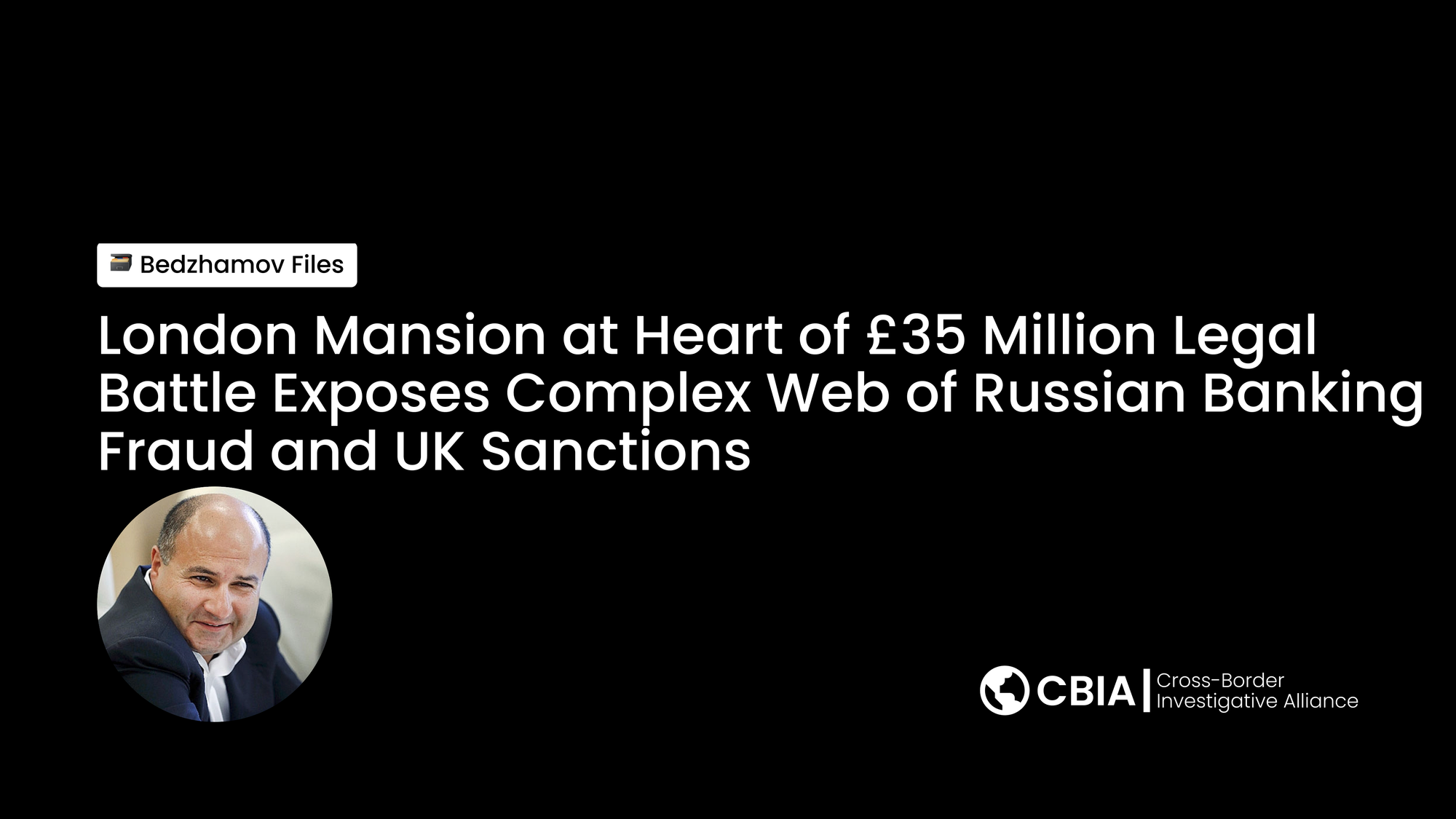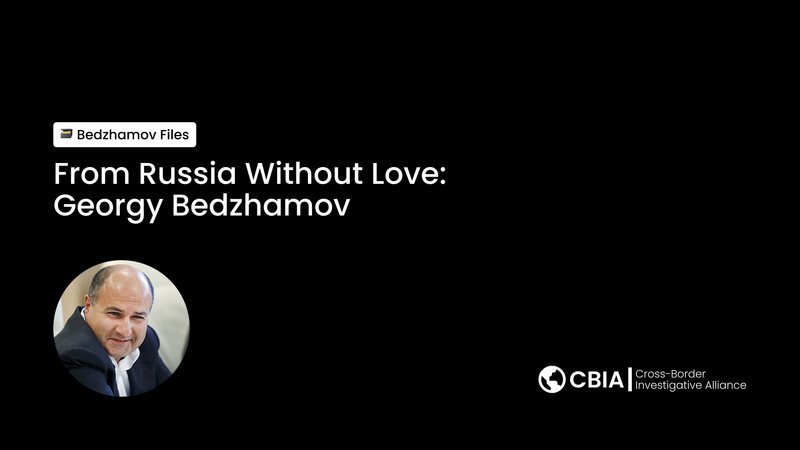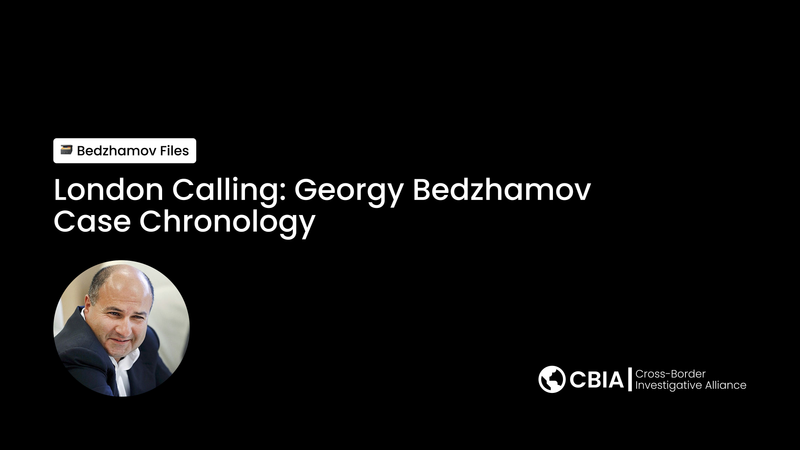London Mansion at Heart of £35 Million Legal Battle Exposes Complex Web of Russian Banking Fraud and UK Sanctions

A £35 million London mansion at 17 Belgrave Square has become the centerpiece of an extraordinary legal battle that illustrates how international sanctions, Russian bankruptcy law, and British property rights can collide in unexpected ways.
The case involves Georgy Bedzhamov, a former Russian banker who fled to London after being accused of defrauding his own bank, Vneshprombank, of over £1 billion. Despite being subject to a worldwide freezing order by English courts, Bedzhamov sought permission to sell his prestigious Belgravia property to pay mounting legal fees - a request that triggered complex questions about who truly controls the litigation funding his opponents.
The story begins in 2016 when Russia's Central Bank revoked Vneshprombank's license after the institution owed creditors more than £1.3 billion [1]. Russian prosecutors allege that Bedzhamov, working with his sister Larisa Markus, issued non-refundable loans to fictitious companies and debited client accounts without authorization [3]. Bedzhamov fled Russia in 2015, eventually settling in London while his sister was sentenced to eight-and-a-half years in prison.
In 2018, a Moscow court declared Bedzhamov bankrupt and appointed Lyubov Kireeva as his trustee in bankruptcy [2]. This set up a unique jurisdictional challenge when Kireeva sought recognition of the Russian bankruptcy order in English courts, particularly regarding Bedzhamov's London property holdings.
The legal complexity deepened significantly when Vneshprombank, backed by litigation funder A1 LLC (part of Alfa Group), pursued Bedzhamov in London's High Court for £1.34 billion in damages [1]. What made this case extraordinary was the revelation that A1 itself was controlled by three Russian oligarchs - Mikhail Fridman, German Khan, and Alexey Kuzmichev - who were designated as sanctioned persons by the UK government in March 2022 following Russia's invasion of Ukraine.
Just before their designation, these oligarchs allegedly sold their interests in A1 to Alexander Fayn, an 80-year-old employee who had worked within the Alfa Group structure for decades [1]. However, Justice Cockerill found "reasonable cause to suspect" that this sale for just £714 was not genuine, noting that "the litigation cannot now proceed smoothly without a determination as to whether there is reasonable cause to believe that A1 is owned or controlled by Designated Persons" [1].
The financial evidence raised serious questions about the legitimacy of the sale. A1's balance sheet showed significant assets that weren't properly accounted for, including a $20 million debt owed by Vneshprombank for litigation funding, approximately £4 million paid into court as security, and substantial claims in the proceedings themselves [1]. The court noted these omissions made A1's financial position "significantly healthier than that disclosed by its balance sheets," casting doubt on the low sale price.
Adding to the intrigue, the timing of the disposal coincided with coordinated resignations and share transfers across the Alfa Group structure. The court found evidence of what appeared to be a "joint arrangement" between the oligarchs, where their combined shareholdings gave them effective control despite none holding a majority individually [1].
The case highlights broader challenges in enforcing international sanctions. UK regulations prohibit dealing with funds owned or controlled by designated persons, but proving such control when ownership has been formally transferred presents significant evidentiary challenges. The court noted that payments in the litigation could potentially benefit sanctioned individuals if A1 remained under their control, making every legal fee payment a potential sanctions violation.
For Bedzhamov, the sanctions issue created an additional layer of legal jeopardy. While seeking to sell his property to fund his defense, he simultaneously argued that his opponents' litigation was being secretly funded by sanctioned oligarchs, potentially making the entire proceeding problematic under UK law.
The Belgrave Square property itself became a focal point when Russian courts issued seizure orders in 2021, attempting to prevent Bedzhamov from disposing of assets [3]. The London High Court had previously valued the estate, which includes both 17 Belgrave Square and 17 Belgrave Mews West, at £35 million.
Ultimately, the case reached the UK Supreme Court on questions of whether English courts could recognize foreign bankruptcy orders affecting English real estate [2]. The complexity of cross-border insolvency law, combined with sanctions enforcement challenges, created a legal maze that has taken years to navigate.
This case demonstrates how modern financial crime transcends borders, creating jurisdictional puzzles that challenge traditional legal frameworks. It also shows how international sanctions, designed to pressure regimes and individuals, can create unintended complications in ongoing legal proceedings.
The battle for 17 Belgrave Square continues to evolve, with A1 reportedly changing its funding arrangements to avoid sanctions complications [1]. However, the fundamental questions raised about the intersection of bankruptcy law, sanctions enforcement, and property rights remain largely unresolved, ensuring this case will likely influence how courts handle similar cross-border disputes in the future.
Sources:
[1] Vneshprombank LLC v Bedzhamov, Kireeva v Bedzhamov [2024] EWHC 1048 (Ch) - High Court of Justice Business and Property Courts
[2] Kireeva v Bedzhamov [2024] UKSC 39 - UK Supreme Court
[3] "Russian court seizes another banker's property in London" - EU Reporter, January 29, 2021



